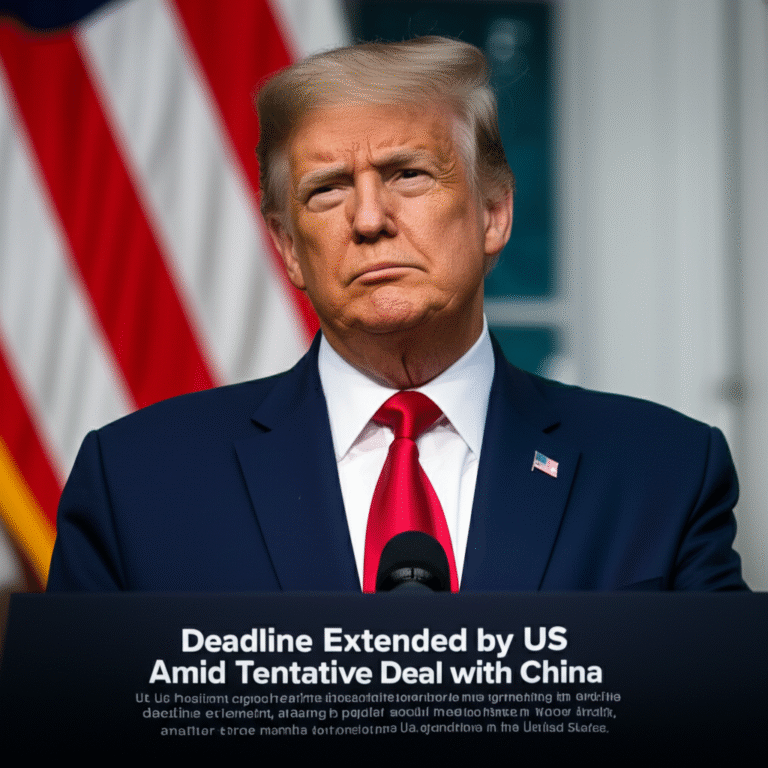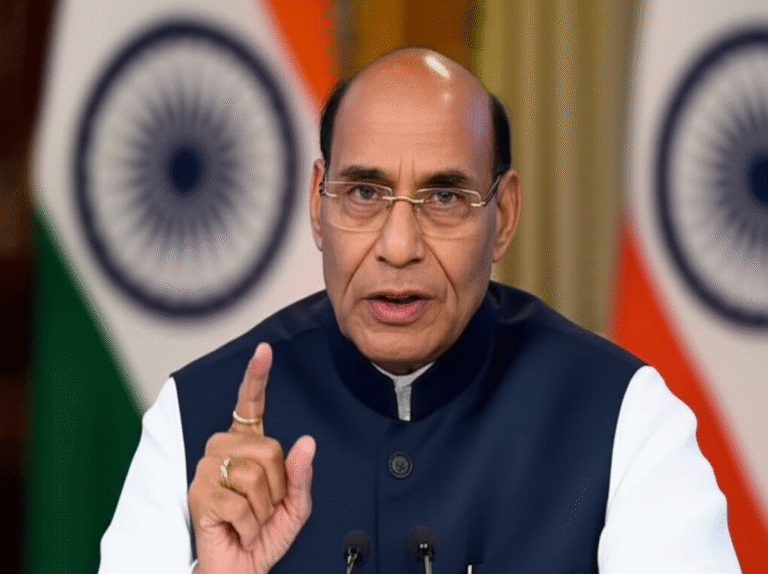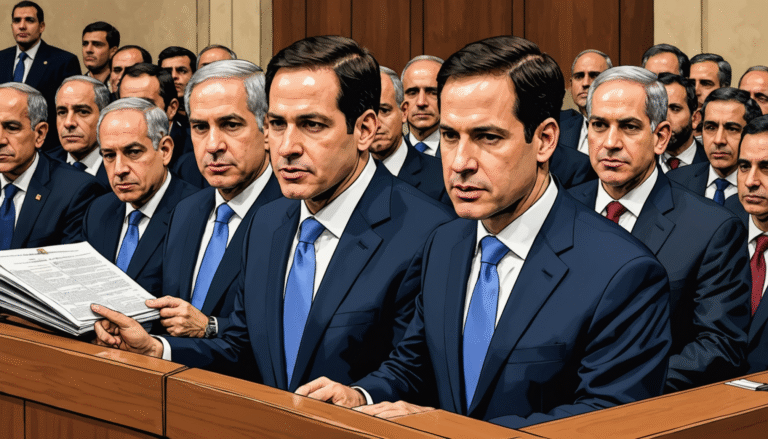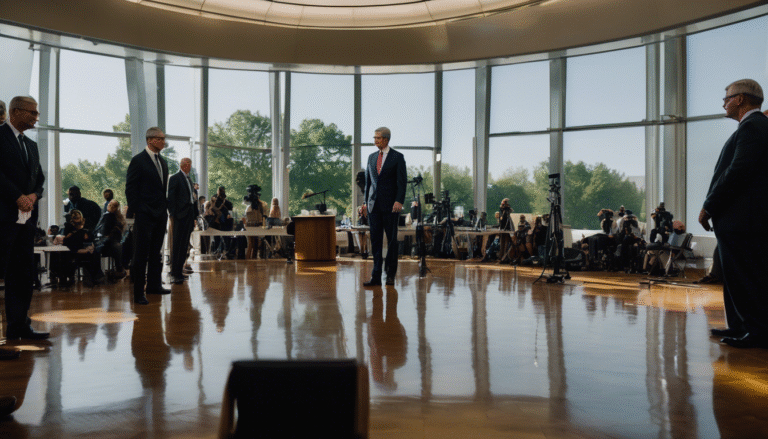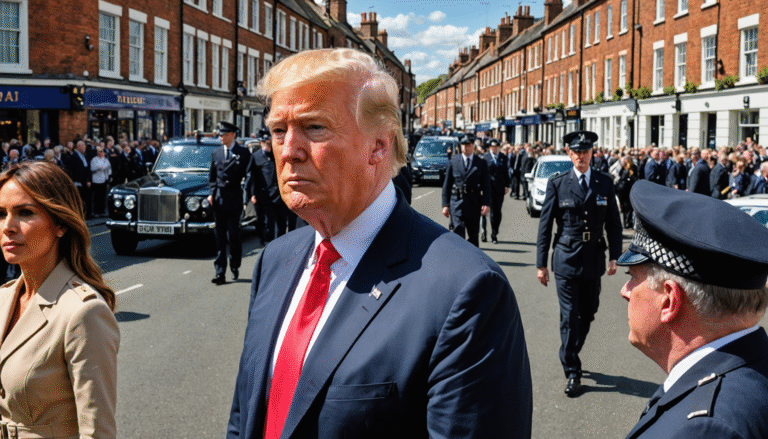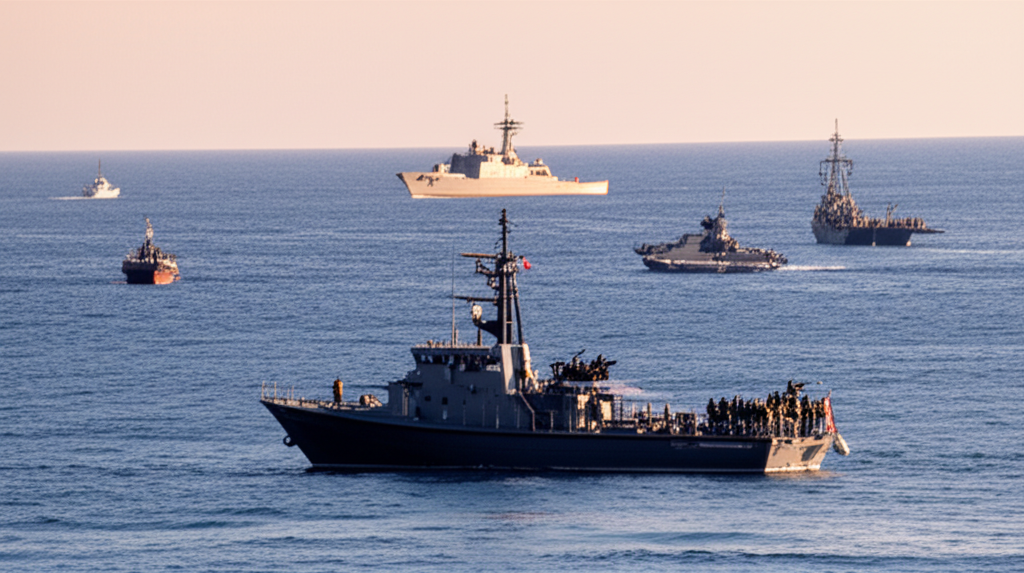
In a significant development contributing to heightened regional tensions, US forces have carried out a second kinetic strike on an alleged US strikes Venezuela drug boats, resulting in the fatalities of three individuals. This action, confirmed by President Donald Trump, targeted what he described as “narcoterrorists from Venezuela” operating in international waters. The incident comes amid a substantial US naval build-up in the Caribbean and follows another strike earlier this month that reportedly claimed 11 lives on a similar vessel. Venezuelan President Nicolas Maduro has responded by vowing to defend against Washington’s “aggression,” underscoring the escalating dispute between the two nations.

Intensified US Operations in the Caribbean
President Donald Trump formally announced the latest kinetic strike via his Truth Social network, stating US Military Forces conducted the operation on his orders. He detailed the strike resulted in “3 male terrorists killed in action,” accompanying his statement with a video showing a boat in the sea exploding into an orange flame. The administration refutes claims that these military actions are extrajudicial killings, maintaining targets are “confirmed narcoterrorists from Venezuela” transporting illegal narcotics. These illicit substances, described by Trump as “A DEADLY WEAPON POISONING AMERICANS!,” were reportedly headed for the United States. This marks a clear escalation in the US strategy to combat drug trafficking, reinforcing Washington’s stance that such operations are vital for national security. The focus on disrupting alleged drug routes in international waters highlights a more aggressive US posture in the Caribbean, directly impacting suspected trafficking networks. Such sustained pressure underscores a firm commitment to interdicting illicit drug flows before they reach US shores, despite controversies over legality and bilateral relations.
“This morning, on my Orders, U.S. Military Forces conducted a SECOND Kinetic Strike,” Trump said on his Truth Social network, adding that “The Strike resulted in 3 male terrorists killed in action.”
Rising Tensions and Accusations Against Caracas
Tensions between the United States and Venezuela, long-standing adversaries, have reached an unprecedented level following recent naval deployments. The US government dispatched eight warships to waters adjacent to Venezuela, an overt measure aimed at increasing pressure on the Maduro administration. Washington maintains that Venezuelan President Nicolas Maduro heads a cocaine trafficking cartel, an accusation that led to a dramatic increase in the bounty for his capture, now $50 million. The international community largely rejected Maduro’s re-election in July 2024, citing widespread fraud alleged by the opposition. This political backdrop fuels the broader conflict, with the US positioning its actions as a response to illegal activities and democratic deficiencies. The Venezuelan government views these actions as attempts at regime change, a frequent accusation leveled against the United States by Maduro. This multifaceted dispute encompasses political, economic, and security dimensions, with the Caribbean becoming a primary arena for direct confrontation and heightened military presence.
The core points of friction in the ongoing US-Venezuela dispute include:
- US accusations that President Maduro heads a cocaine trafficking cartel.
- Rejection by much of the international community of Maduro’s July 2024 re-election.
- Venezuela’s accusations that the US is attempting regime change.
- US military strikes targeting alleged drug trafficking boats.
- Venezuela’s deployment of troops and mobilization of civilian militias in response to US pressure.
Venezuela’s Defensive Stance and Retaliation
In response to US military actions and rhetoric, President Maduro has fiercely condemned Washington’s approach. On Monday, he labeled US Secretary of State Marco Rubio the ‘lord of death and war,’ directly referencing Rubio’s stringent comments regarding Latin American cartels. Maduro affirmed that Caracas would ‘fully’ exercise its ‘legitimate right to defend itself’ against the US naval build-up and boat attacks. These statements underline Venezuela’s resolve to counter perceived foreign aggression and interference. Maduro has consistently accused the United States of orchestrating regime change efforts, interpreting military pressure as a direct manifestation of this intent. Amid speculation regarding potential targeted strikes against Latin American drug cartels, including those in Venezuela, Trump refrained from denying such possibilities, stating, ‘We’ll see what happens’ when questioned about mainland strikes. He emphasized concerns about Venezuela allegedly sending ‘gang members, their drug dealers and drugs’ to the US, declaring this ‘not acceptable.’ This exchange of strong words and military posturing characterizes the deeply antagonistic relationship.
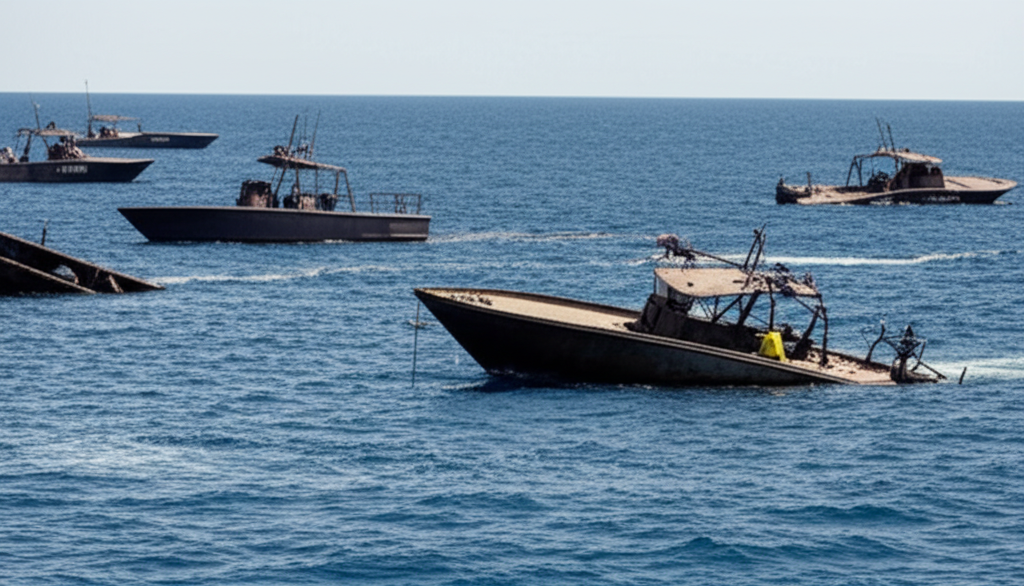
US Officials Defend Interdiction Efforts
Earlier this month, Washington intensified actions by blowing up a speedboat carrying 11 individuals, asserted to be engaged in drug smuggling from Venezuela. The legality of this attack in international waters drew scrutiny. However, in an interview on Fox News from Jerusalem, Secretary of State Marco Rubio staunchly defended the operation. Rubio asserted, ‘We have 100 percent fidelity and certainty that that boat was involved in that trafficking of those drugs.’ He advocated for a more aggressive approach, stating, ‘What needs to start happening is some of these boats need to get blown up.’ Rubio further claimed that since the initial missile strike, the number of boats transporting drugs to the United States had ‘dropped dramatically,’ suggesting kinetic operations’ effectiveness. This official stance indicates a clear strategic shift towards preemptive interdiction at sea, aiming to disrupt drug supply lines directly. Justification for these actions hinges on perceived certainty of drug trafficking involvement and stated positive impact on drug flows to the US, even as questions about international law and escalation risks persist. More information can be found at the original article: [Source]
Background
The current heightening of tensions is not an isolated event but the latest phase in a strained relationship. Diplomatic ties between the United States and Venezuela were severed in 2019, marking a significant deterioration. President Maduro attributes the breakdown in communications with the Trump administration primarily to US ‘aggression,’ committing his country to ‘confront it.’ He places considerable blame on Secretary Rubio, a prominent critic of left-wing authoritarian governments in Latin America. While most cartels on terrorism lists are Mexican, Washington’s focus has distinctly shifted punitive actions towards Venezuela. Maduro stated ‘bomb threats’ have caused a complete collapse in relations, creating an atmosphere of deep mistrust and open hostility. This historical context of diplomatic rupture and mutual recriminations provides essential background for understanding present military and rhetorical escalations in the Caribbean region.
What’s Next
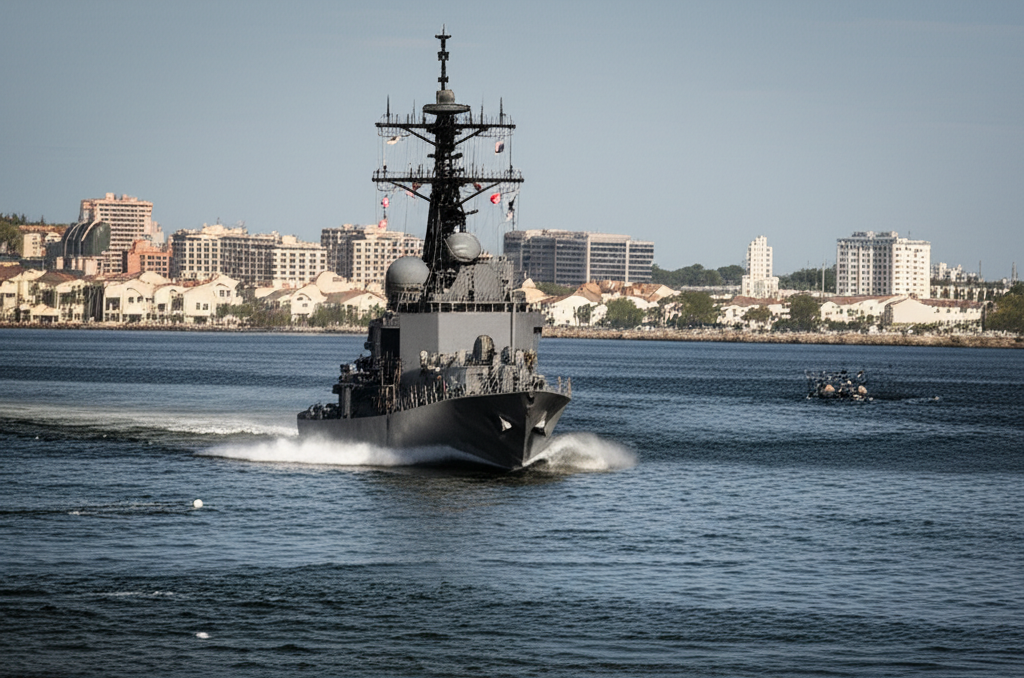
In anticipation of continued US pressure, Venezuela has initiated significant defensive measures. President Maduro has deployed approximately 25,000 troops to the nation’s border with Colombia, a known transit hub for the Latin American drug trafficking route, and along its Caribbean coast. This substantial military deployment underscores Venezuela’s commitment to fortifying its territorial integrity. Concurrently, thousands of civilians have joined a national militia, intended as a supplementary force to the military. Over a recent weekend, recruits participated in training camps, learning to handle and fire weapons. One recruit, Jenny Rojas, a 54-year-old lawyer, articulated the collective sentiment: ‘If they (the United States) try to attack the homeland, the entire population will defend it!’ This widespread mobilization, both military and civilian, indicates Venezuela’s preparedness for potential further escalation, suggesting readiness to respond forcefully to any perceived attack on its sovereignty. The situation remains volatile, with both nations maintaining heightened alert and defense.


